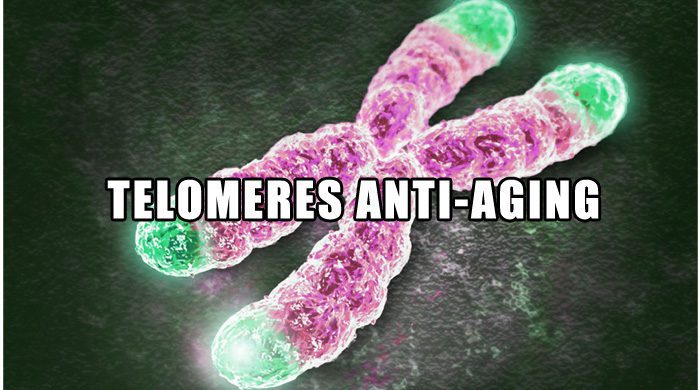Telomeres Anti-Aging

Anti-aging of cells can be achieved by protecting telomeres and this can be done without the use of pharmaceutical drugs. Telomeres are implicated in the aging of cells through mechanisms that are used to replicate cells.
Telomeres are repetitive sequences of DNA that don’t contain genetic information and cap the ends of chromosomes. They are like the plastic tips on the end of shoelaces that keep the ends of shoelaces from fraying.
Telomeres keep the ends of chromosomes from splitting apart, which would allow the DNA that does contain genetic information to bind with other chromosomes. This would corrupt the genetic information and lead to cell death.
When a cells divides the DNA that contains the genetic information of the cell is correctly duplicated into the daughter cell, but the enzyme responsible for duplicating the telomere is not able to duplicate the very end of the telomere.
Therefore, every time a cell divides the telomere becomes shorter and when the telomere reaches a certain length the cell is not able to divide anymore. This leads to the aging of a cell and cell death, and instead of dying of through a process called apoptosis a cell might also transform into cancer cell.
Stopping or slowing down of the shortening of the telomere leads to the “anti-aging” of a cell, which is possible through the interaction of the telomerase enzyme and or lifestyle changes.
Telomerase is a reverse transcriptase enzyme containing protein and RNA that is able to copy its RNA into the telomere’s DNA and add length back to the telomere.
Adding back length to the telomere would add additional times the cell could replicate and would extend the cell’ life. Telomerase is active in stem cells and germ cells, but is not usually active in somatic cells which leads to the death of the cells of the body.
Studies[1,2] have shown the telomerase activity can be increased primarily through consuming a plant-based diet, but also through increased exercise and stress management. The increased telomerase activity was able to add DNA back to the telomere and increase its length.
The consumption of animal saturated fat and smoking increased oxidative stress which attacked the telomeres and led to quickened telomere shortening and aging.
The high concentration of antioxidants in plant foods, increased exercise, and stress management reduced oxidative stress, protected telomere, and supported anti-aging.
[1] Effect of comprehensive lifestyle changes on telomerase activity and telomere length in men with biopsy-proven low-risk prostate cancer: 5-year follow-up of a descriptive pilot study
[2] Reconstitution of telomerase activity in normal human cells leads to elongation of telomeres and extended replicative life span






